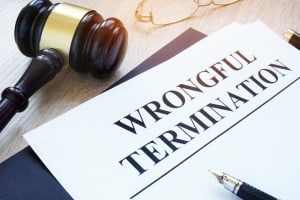 My brilliant law partner, Brandon McWherter, has written on this topic in the past, but it appears that a quick “ICYMI” note is warranted. Truth is, despite that fact that there still seems to be a bunch of fussing over this topic, the answer to when Overhead and Profit (O&P) is owed is pretty straight-forward. In Tennessee, Overhead and Profit is recoverable if the insured would “reasonably be expected to hire a contractor to repair its property.” Despite the clarity of this rule, many insurers do not pay Overhead and Profit properly. Some insurance companies fail to pay O&P on actual cash value payments promptly, waiting for the completion of the work until payment is made.
My brilliant law partner, Brandon McWherter, has written on this topic in the past, but it appears that a quick “ICYMI” note is warranted. Truth is, despite that fact that there still seems to be a bunch of fussing over this topic, the answer to when Overhead and Profit (O&P) is owed is pretty straight-forward. In Tennessee, Overhead and Profit is recoverable if the insured would “reasonably be expected to hire a contractor to repair its property.” Despite the clarity of this rule, many insurers do not pay Overhead and Profit properly. Some insurance companies fail to pay O&P on actual cash value payments promptly, waiting for the completion of the work until payment is made.
Some insurers will hold back O&P from specific categories of the contractor estimate, such as debris removal, cleaning, roofing, or mitigation. Other companies fail to provide O&P completely, asserting that the business interruption insurance claim is not sufficiently complex to justify Overhead and Profit. Fire and water loss claims have also been denied O&P coverage.
These denials and delays are not only improper, but may be legally classified as acts of bad faith by the insurance carrier.
When is O&P applicable?
The question to be answered in any O&P dispute case is: was the insured reasonably likely expected to hire a contractor to take care of property repairs? There is a process in Tennessee for determining when the insured is reasonably likely to be expected to hire a contractor. On January 1, 2014, a bulletin that explains when a policyholder is reasonably expected to hire a contractor was issued by the Board of Licensing Contractors in Tennessee. Policyholders in Tennessee can follow the guidance provided by this bulletin.
In summary, if a project is valued at $25,000 or more (not including masonry), or when multiple subcontractors or tradesman will be present on the project, a contractor is required. According to the Board of Licensing, bids or estimates on projects of $25,000 or more or those that will involve more than one subcontractor may not take place without a contractor’s license. Contractors who have worked hard to become licensed are owed compensation to cover Overhead and Profit for the work they have completed. BEWARE OF THE “OR.” Many insurance companies try to ignore the “or” and argue that only projects with a certain number of involved trades warrant O&P. That’s simply not the case. The $25,000 limit alone is sufficient to involve the use of a licensed general contractor.
You are paying for O&P – you deserve it
As Brandon points out, remember that the insurance premiums you pay are calculated based on a replacement cost value. Your insurance agent will use software to calculate this replacement cost and that cost will include Overhead and Profit charges from a general contractor. Due to the fact that you are currently paying an insurance premium for O&P, you are owed compensation for O&P on all repairs and/or losses that reflect the criteria mentioned above – and those losses and/or repairs may also involve restoration or mitigation services. In addition, any restoration company that is a licensed contractor is owed O&P on the work they perform.
Our Tennessee insurance dispute lawyers at the Gilbert Firm are here to help you recover any losses you have suffered due to a business interruption. Tennessee insurance dispute attorneys Jonathan Bobbitt, Clint Scott and Brandon McWherter have the experience and skills to maximize your compensation. To set up a free case evaluation, call us today at 888.996.9731 or complete our contact form. We serve clients from our office locations in Nashville, Memphis, Chattanooga, Knoxville, and Jackson. We also maintain offices in Tupelo and Jackson, MS as well as Louisville, KY.
 Employment law has come up a lot in the news lately, especially with all the firings and resignations going on in our nation’s capital. A lot of questions have come up over whether some of these firings have been legal, so this blog will delve into the details of what wrongful termination is, and what it isn’t.
Employment law has come up a lot in the news lately, especially with all the firings and resignations going on in our nation’s capital. A lot of questions have come up over whether some of these firings have been legal, so this blog will delve into the details of what wrongful termination is, and what it isn’t. A 2015 study was conducted by Rand Corp. in conjunction with Harvard Medical School and the University of California, Los Angeles, of 3,066 U.S. workers. It reveals that almost 20 percent of U.S. workers say they are
A 2015 study was conducted by Rand Corp. in conjunction with Harvard Medical School and the University of California, Los Angeles, of 3,066 U.S. workers. It reveals that almost 20 percent of U.S. workers say they are  With recent allegations against such notable celebrity chefs as Ken Friedman and Mario Batali, it is clear that the restaurant industry is not immune from accusations and incidents of sexual harassment. A recent report by The Washington Post discusses the
With recent allegations against such notable celebrity chefs as Ken Friedman and Mario Batali, it is clear that the restaurant industry is not immune from accusations and incidents of sexual harassment. A recent report by The Washington Post discusses the  When you visit a hotel, you probably expect to leave with the property you brought along with you. From valuable jewelry to expensive electronics, a hotel guest may have thousands of dollars in property during an average stay. When these items become damaged due to the negligence of the hotel, it can be extremely challenging to obtain compensation from the hotel’s insurance provider. Not only will they try to deny responsibility, but they may also use bad faith tactics to avoid or significantly lower your damage amount.
When you visit a hotel, you probably expect to leave with the property you brought along with you. From valuable jewelry to expensive electronics, a hotel guest may have thousands of dollars in property during an average stay. When these items become damaged due to the negligence of the hotel, it can be extremely challenging to obtain compensation from the hotel’s insurance provider. Not only will they try to deny responsibility, but they may also use bad faith tactics to avoid or significantly lower your damage amount. As the recent damage from Hurricanes Harvey and Irma show, the areas where homes can be flooded is expanding. Many home insurance property policies protect your contents if a fire or theft occurs, but homeowner policies do not normally cover your contents, cleanup costs, and repair or replacement costs if a flood damages your property. The causes of floods include more than just storms and hurricanes. Other causes include breaking dams or levees, melting snow/ice, broken pipes, and other natural and unnatural causes.
As the recent damage from Hurricanes Harvey and Irma show, the areas where homes can be flooded is expanding. Many home insurance property policies protect your contents if a fire or theft occurs, but homeowner policies do not normally cover your contents, cleanup costs, and repair or replacement costs if a flood damages your property. The causes of floods include more than just storms and hurricanes. Other causes include breaking dams or levees, melting snow/ice, broken pipes, and other natural and unnatural causes.